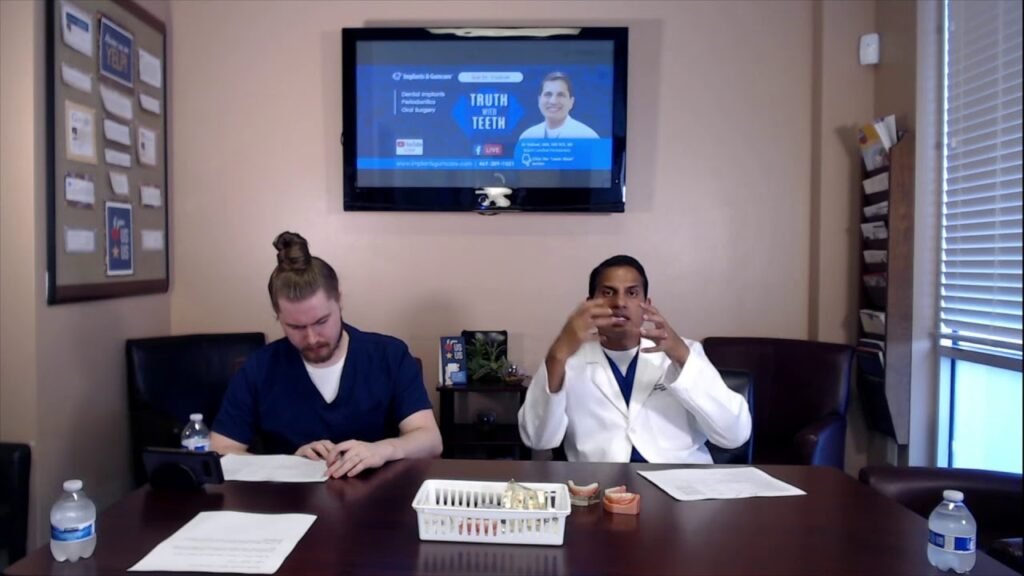Banish Bad Breath: How Wisdom Teeth Can Be the Culprit

Are you experiencing persistent bad breath despite regular brushing and flossing? Your wisdom teeth may be to blame. The eruption of these third molars can often lead to difficult-to-reach pockets of bacteria, causing foul odors to linger in your mouth. In this article, we'll explore the connection between wisdom teeth and bad breath, as well as provide tips for managing this common issue. Say goodbye to embarrassing odors and hello to fresh breath with our expert advice.
How can impacted wisdom teeth cause bad breath and how can it be treated?
Do you suffer from bad breath caused by impacted wisdom teeth? When wisdom teeth do not have enough room to emerge properly, they become impacted. This can lead to bacterial growth and infection, resulting in unpleasant breath. To combat this issue, antibiotics can be prescribed to treat the infection and improve oral hygiene. In severe cases, extraction of the impacted wisdom teeth may be necessary to eliminate the root cause of the problem.
If you are experiencing bad breath due to impacted wisdom teeth, it is important to address the issue promptly. By cleaning and treating the surrounding gums, you can help reduce bacterial growth and improve overall oral health. In some cases, wisdom teeth extraction may be recommended to completely resolve the problem and prevent future infections. Taking proactive steps to address impacted wisdom teeth can help eliminate bad breath and promote a healthier mouth.
Don't let bad breath from impacted wisdom teeth hold you back. By taking antibiotics, cleaning the affected area, and potentially undergoing wisdom teeth extraction, you can effectively combat the issue and restore fresh breath. Remember to consult with a dentist or oral surgeon for proper diagnosis and treatment options. With the right approach, you can say goodbye to bad breath and enjoy improved oral health.
What are the consequences of delaying the removal of wisdom teeth?
If you wait too long to get your wisdom teeth out, you may end up with limited space in your jawbone. This can result in the tooth becoming partially erupted or completely concealed inside the gum, leading to potential dental issues like cavities and infections. It's important to address wisdom teeth removal in a timely manner to prevent these complications and maintain good oral health.
How can Pericoronitis bad breath be treated?
To treat Pericoronitis bad breath, consider using a chlorhexidine mouthwash recommended by your dentist. Chlorhexidine is a topical antiseptic that effectively destroys harmful bacteria in the mouth, helping to alleviate the symptoms of Pericoronitis. Be aware that temporary side effects like altered taste or dental staining may occur with prolonged use of chlorhexidine rinses.
Uncovering the Hidden Cause of Bad Breath
Are you tired of dealing with embarrassing bad breath? Look no further, as we uncover the hidden cause behind this common issue. While many people may think bad breath is simply caused by poor oral hygiene, the truth is that it can also be a sign of underlying health issues such as gum disease, dry mouth, or even certain medical conditions. By identifying and addressing the root cause of your bad breath, you can finally achieve long-lasting fresh breath and regain your confidence.
Wisdom Teeth: The Silent Culprit Behind Bad Breath
Wisdom teeth, also known as third molars, often go unnoticed until they start causing problems. One common issue associated with wisdom teeth is bad breath, which can be a result of food particles getting trapped in the pockets around these teeth. These hard-to-reach areas create a breeding ground for bacteria, leading to an unpleasant odor that can be difficult to get rid of with regular brushing and flossing.
Regular dental check-ups are crucial in monitoring the growth and health of wisdom teeth to prevent bad breath and other potential complications. Extraction may be necessary if these teeth are causing discomfort or contributing to oral hygiene issues. By addressing the silent culprit behind bad breath, individuals can maintain fresh breath and overall oral health.
Say Goodbye to Bad Breath with Wisdom Teeth Removal
Say goodbye to bad breath once and for all by considering wisdom teeth removal. Not only can impacted wisdom teeth cause discomfort and alignment issues, but they can also trap food particles and bacteria, leading to foul odors and bad breath. By removing these troublesome teeth, you can improve your oral health and freshen your breath, giving you the confidence to smile and speak without worry. Don't let bad breath hold you back – schedule a consultation with your dentist today to discuss the benefits of wisdom teeth removal.
Don't let bad breath caused by wisdom teeth ruin your confidence and social interactions. By addressing the underlying issue of impacted wisdom teeth through proper dental care and consultation with a dentist, you can enjoy fresh breath and improved oral health. Take charge of your dental hygiene today and say goodbye to bad breath for good.